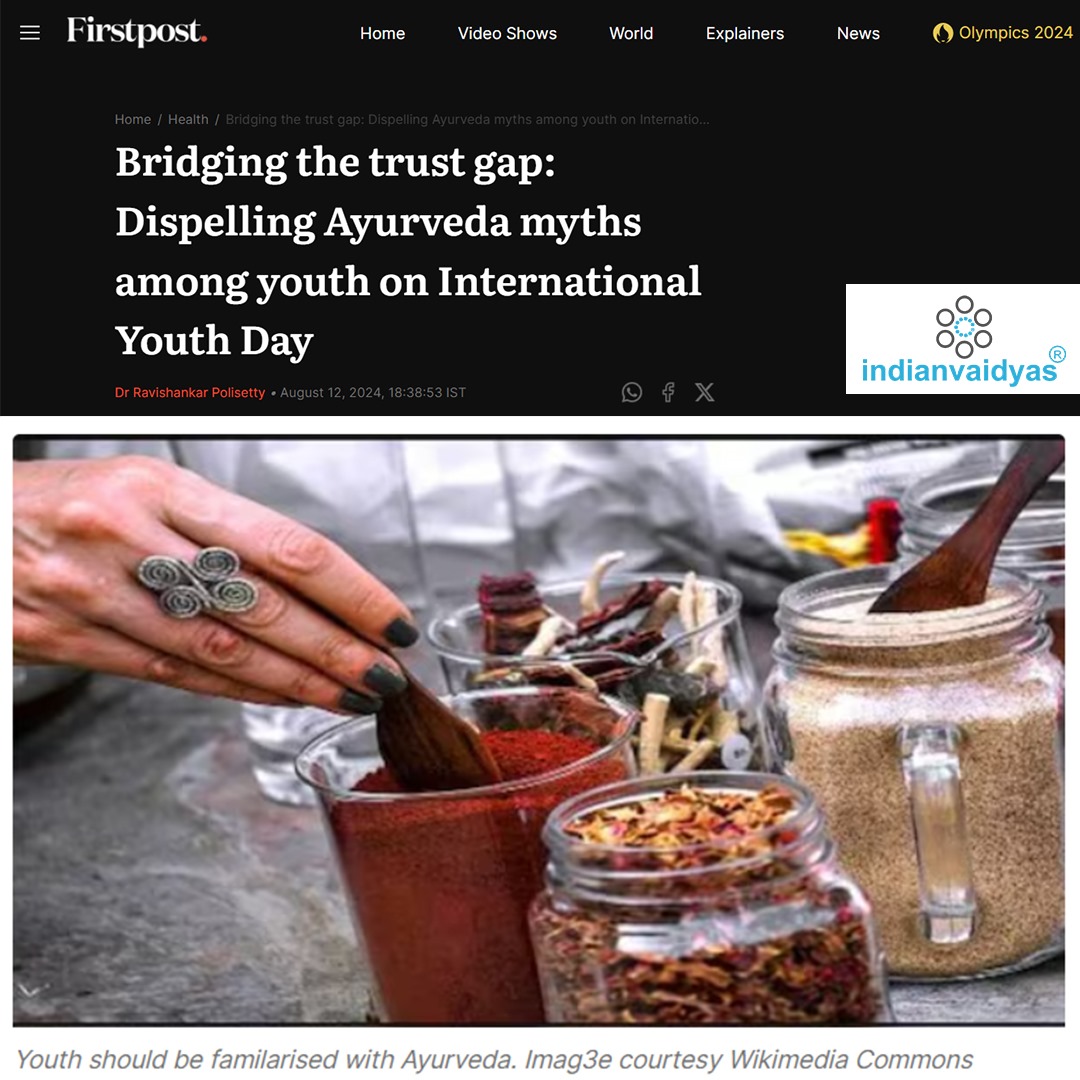Bridging the trust gap: Dispelling Ayurveda myths among youth on International Youth Day
13-Aug-24 06:00:15

Educational campaigns aimed at dispelling misconceptions about Ayurveda, particularly among younger audiences, could benefit from scientific validation
A recent report by Maximize Market Research estimates that the global revenue for complementary and alternative medicine will increase at a compound annual growth rate (CAGR) of 17.9 percent from 2022 to 2029, reaching approximately USD 362.97 billion during this period. This projection reflects an increasing interest in holistic medicine. However, challenges such as questionable research, fraudulent claims, and limited scientific evidence continue to impact the perception and credibility of these practices.
Examination of Poly Scientific Ayurveda (PSA)
Poly Scientific Ayurveda (PSA) is one of the approaches within the broader field of complementary and alternative medicine. It seeks to integrate traditional Ayurvedic practices with modern scientific research. PSA claims to address various health conditions, including heart disease, diabetes, kidney failure, skin disorders, and cancer. Additionally, technological innovations like the Docture-Poly device aim to combine Ayurvedic principles with machine learning (ML) and artificial intelligence (AI).
Educational and scientific validation
Educational campaigns aimed at dispelling misconceptions about Ayurveda, particularly among younger audiences, could benefit from scientific validation. Such campaigns can help provide a clearer understanding of Ayurvedic principles and their applications. The transition of individuals from conventional medical fields to Ayurvedic research highlights efforts to integrate traditional concepts with contemporary scientific methods.
Approach and long-term commitment
Ayurvedic practices often involve addressing root causes of diseases and promoting overall well-being. These practices generally require long-term lifestyle changes and active patient involvement in health management.
Quality assurance and trust building
Ensuring the quality and credibility of Ayurvedic practices involves implementing standardized quality controls, regulated manufacturing, advanced extraction techniques, and conducting clinical trials. Transparent and well-researched information in reputable journals may contribute to a more comprehensive understanding of Ayurveda.
SOURCE & CREDIT: FIRST POST